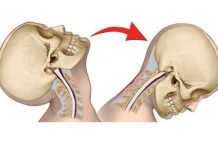BenEliyahu DJ
OBJECTIVE: To prospectively investigate the effect of chiropractic management on clinical and anatomical outcome of disc pathomorphology in previously magnetic resonance imaging (MRI)-documented disc herniation of the cervical and lumbar spine.
SETTING: Private practice.
SUBJECTS: Twenty-seven patients with MRI-documented and symptomatic disc herniations of the cervical or lumbar spine. A prospective clinical case series.
DESIGN: All patients were evaluated before commencement of chiropractic care by MRI scans for presence of disc herniations. Precare evaluations also included clinical examination and visual analog scores. Patients were then treated with a course of care that included traction, flexion distraction, spinal manipulative therapy, physiotherapy and rehabilitative exercises. All patients were re-evaluated by postcare follow-up MRI scans, clinical examination and visual analog scores. Percentage of disc shrinkage on repeat MRI, resolution of clinical examination findings, reduced visual analog pain scores and whether the patient returned to work were all recorded.
RESULTS: Clinically, 80% of the patients studied had a good clinical outcome with postcare visual analog scores under 2 and resolution of abnormal clinical examination findings. Anatomically, after repeat MRI scans, 63% of the patients studied revealed a reduced size or completely resorbed disc herniation. There was a statistically significant association (p < .005) between the clinical and MRI follow-up results. Seventy-eight percent of the patients were able to return to work in their predisability occupations.
CONCLUSION: This prospective case series suggests that chiropractic care may be a safe and helpful modality for the treatment of cervical and lumbar disc herniations. A random, controlled, clinical trial is called for to further substantiate the role of chiropractic care for the nonoperative clinical management of intervertebral disc herniation.







